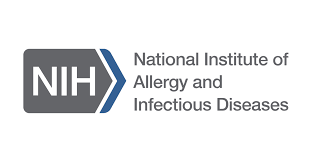
The University of South Carolina is now accepting applications for their second annual T35 Big Data Health Science in Infectious Diseases Summer Research Training program! The NIH-funded T35 Research Traineeship Program is designed specifically for pre-doctoral students in physical and/or quantitative sciences from across the United States. This is an 11-week, full-time intensive course-based training program to work alongside established clinical scientists on one or more Big Data Health-related studies. In addition to formal classroom training (at no cost to the student), each student will receive accommodations and a stipend to be involved in a specific research project, actively participating in a hands-on manner in a research laboratory currently conducting studies related to Big Data Health Science. As you prepare for a career in Big Data Science, you can learn about research that involves Big Data and work alongside a diverse array of well-known established researchers in a full-time, hands-on setting.
The future of health care will be shaped by the role big data plays in improving patient outcomes. Currently, the potential of BDS in healthcare research remains limited due to various structural or methodological challenges in data acquisition, analysis, and interpretation. Central to addressing these challenges is the training of a critical mass of researchers with the adequate knowledge, competencies, and skills needed to unlock important answers from Big Data to better understand, treat, and ultimately prevent infectious diseases and their related comorbidities. The ultimate goal of this program is to cultivate a thriving and talented pipeline of next generation scientists, engaging current students early and providing new and innovative training opportunities to generate interest in the biomedical, social and behavioral, and clinical sciences. Being the inaugural year, there were concerns regarding how to make the program accessible for people from all scientific backgrounds. The BDHSC would like to thank the 2022 cohort for collaborating with the executive committee on ways to fine-tune the program to enhance the experience of future cohorts. The BDHSC is committed to constant quality improvement, and appreciates the opportunity to collaborate with trainees to gain their perspective at every point in the program.
The 2022 Cohort consisted of 8 students from diverse backgrounds in the sciences, including: Brendan Case, a PhD student in Computer Science at the University of Vermont, Charles Dowling II, a Master’s student in Biology from Claflin University, Shaelynn Frederick, a Master’s student in Biology from Claflin University, Joshua Miles, a PhD student in Statistics at the University of Florida, Hannah Shead, a Master’s student in Biological and Computational Mathematics at Augusta University, Chelsea Spence, a PhD student in Industrial Engineering at Clemson University, Jacob Stanley, a PhD student in Information Technology at the University of South Carolina, and Jack Stavrakas, a PhD student in Informatics at the University of South Carolina. Here are some impressions that students from our 2022 cohort had of the program:
The T35 program helps participants to learn about data science and machine learning as applied to infectious diseases. If this topic is interesting and new to you, the program provides a great introduction.
It’s useful to pick cohorts from different backgrounds, and the incoming people should know that they should read on Data Science and it’s importance before joining.
The BDHSC’s T35 program is stocked with caring faculty who are excited about the program and about working with students. The program gives many opportunities to study real-life use cases of data science in healthcare and to develop related research aims. On the side, USC and Columbia are exciting places to be, with lots of great history, food, and recreation nearby.
The usefulness and additional research experience gained from the mentor relationship.
The T35 program has a solid foundation of dedicated staff, interesting mentors, and a wide variety of practical exposures to infectious disease data science.
A Special Thanks to Our Funder
The BDHSC would like to thank the National Institute for Allergy and Infectious Diseases for making this program possible through their T35 grant award.

